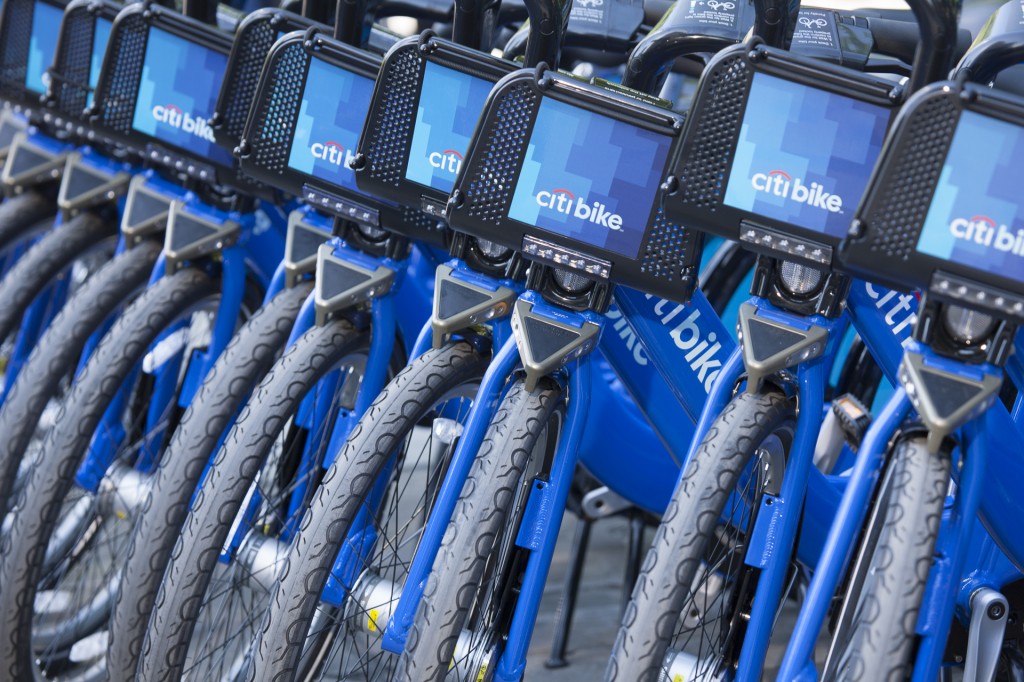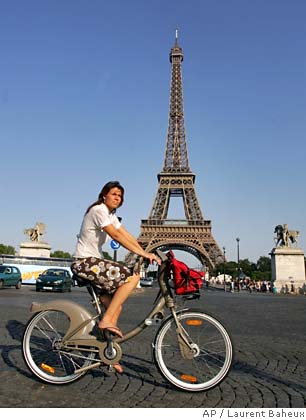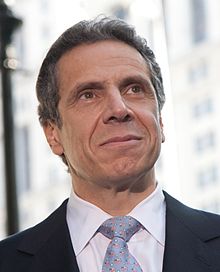 New York City gave me Bikeshare for my birthday (June 2):
New York City gave me Bikeshare for my birthday (June 2):
Citi Bike officially launched to annual members on Monday, May 27. As of 5 p.m., members had made more than 6,000 bike trips, and traveled over 13,000 miles – greater than half the Earth’s circumference! Visit Citi Bike’s blog for more stats, facts and tips.Membership opens to daily and weekly users on June 2.
Well, it opened to people taking out an annual membership on May 27, but I don't live anywhere near New York, so if I get to use it, it will be as a "daily or weekly" user.
This is not the beginning of Bikeshare in the United States, of course. -- Bikes Belong says of third generation bikeshare systems:
Modern bike sharing programs—large fleets of bicycles designed for low-cost, short-term use and made available at closely spaced rental stations—have the potential to transform American cities. During the past decade, many Europeans cities have successfully implemented large-scale bike share systems, and now U.S. cities are following. The latest, third generation of programs has high-tech checkout and tracking capabilities, giving bike sharing a level of legitimacy that matches other types of public transportation.
Bike Belong reports 2010 as the onset of third generation Bikeshare programs in the United States, bringing us technology developed and elaborated in Europe over the past decade:
During 2010, four major American cities opened third-generation bike sharing programs:
- Denver, CO: B-Cycle — 500 bikes, 50 stations, 102,000 rides in 7 months
- Minneapolis, MN: Nice Ride — 700 bikes, 65 stations, 100,000 trips in 7 months
- Chicago, IL: B-Cycle — 100 bikes, 6 stations
- Washington DC: Capital Bikeshare — 1,100 bikes, 110 stations
The success of these systems—primarily in shifting short trips away from driving—has inspired other American cities to enact bike sharing programs. Programs planned for 2011 and beyond include:
- Miami, FL: DecoBike — 1,000 bikes, 100 stations, March 2011
- Boulder, CO: B-Cycle — 200 bikes, 25 stations, May 2011
- Madison, WI: B-Cycle — 350 bikes, 35 stations, May 2011
- New York City — 10,000 bikes, 600 stations, April 2012
- Portland, OR — 750 bikes, 74 stations
... but although that list gives the original 2012 start for New York City's Bikeshare program, Citi Bike, there was an initial delay, and then Sandy hit New York City, which delayed the introduction of NYC CitiBike:
the New York City Department of Transportation announced today that the bike share system would be delayed once again due to equipment damaged by flooding during the superstorm. [10Dec2012]
 Bikeshare is a wonderfully disruptive technology. On the one hand, while a majority of people in the US are car dependent by design of our transportation system, there are still substantial numbers who would be capable of ditching a car entirely if they included cycling to their transport options. However, many of those people do not own a bike, and will never discover that they could be car independent without some way to experience the possibilities of cycle commuting. Bikeshare gives them a chance to dip their toe in the water with no permanent commitment.
Bikeshare is a wonderfully disruptive technology. On the one hand, while a majority of people in the US are car dependent by design of our transportation system, there are still substantial numbers who would be capable of ditching a car entirely if they included cycling to their transport options. However, many of those people do not own a bike, and will never discover that they could be car independent without some way to experience the possibilities of cycle commuting. Bikeshare gives them a chance to dip their toe in the water with no permanent commitment.
At the same time, there are some people who have access to public transport, but the available public transport options do not cover all of their needs. Bikeshare offers substantial flexibility in extending the reach of public transport routes. And those riders that find a mixed public transport / bikeshare trip that meets their needs are also good news for the public transport system. So Bikeshare can act as a recruiter for public transport. Those same people might well be able to get similar flexibility with a folding bike -- but again, the Bikeshare gives them the chance to dip their toe in the water with no permanent commitment.
By its nature, Bikeshare will increase the number of people who cycle for some trips in a city more than it increases total miles traveled by cyclists. Many of those part-time Biekshare users will be motorists at other times. So even for transport cyclists who will never use Bikeshare, Bikeshare increases the number of drivers who have experienced being on the other side of bike/car interactions, which is good news both directly and also politically.
And of course in the large US cities that are introducing Bikeshare systems, Bikeshare is good news for motorists as well, since parking congestion is an ever-present challenge for motorists in large cities, and every person who switches from driving into the city to a trip that includes a Bikeshare leg is one more parking space freed up.
Add in the fact that no petroleum is consumed in the Bikeshare leg of the trip, with a substantial to massive CO2 emissions reduction (the location on the substantial versus massive spectrum depending on how much tithe is paid to factory farms in the course of "fueling" the bike trip), and its a four square combo win-win-win-win.
Oh ... wait, that means its not a win for everybody. There's somebody who loses, which means the Big Oil's pet media outlets have to find some way to attack a win-win-win-win solution. And few media chains are bigger Big Oil pets than Murdoch's NewsCorp empire. So enter the Wall Street Journal.
Insane Mad Hackery and the Wall Street Journal
As reported in the Huff'n'Puff'n'Post,
Dorothy Rabinowitz, WSJ Editorial Board Member, Freaks Out Over NYC Bike Share Program (VIDEO)
...
When asked to identify the merits of a bike share program in New York City, Rabinowitz offered this deadpanned response. "Do not ask me to enter the mind of the totalitarians running this government of the city," she said. Rabinowitz added that the "majority of citizens" in New York City are "appalled" by this "dreadful program."
"We now look at a city whose best neighborhoods are absolutely—you know, begrimed, is the word—by these blazing blue Citi Bank bikes—all of the finest, most picturesque parts of the city," she lamented. "It is shocking to walk around the city to see how much of this they have sneaked under the radar in the interest of the environment."
Stephen Colbert chimed in with his support for Dorothy's position (click through to watch)
"I don't see why we need this, folks. We already have a bike program with unlimited access for just the price of bolt cutters.
According to Paul Krugman in Nazi Islamic Bikes From Hell ,
... the absolutely hysterical reaction of right-wingers to the bike program just keeps mounting — and in a way that almost makes the program worth it, all by itself. Not, I hasten to add, because annoying conservatives is the goal per se; instead, what we’re getting is a wonderful window into the conservative psyche.
He then quotes from a piece in Front Page Magazine:
Bicycles are one of the obsessions of Mayor Bloomberg and his transportation secretary Janette Sadik-Khan. Khan is the granddaughter of Imam Alimjan Idris, a Nazi collaborator and principle teacher at an SS school for Imams under Hitler’s Mufti, Haj Amin al-Husseini. The bio of his son, Wall Street executive Orhan Sadik-Khan, frequently mentions the bombing of the family home in Dresden and surviving trying times after World War II. It neglects to mention that the times were only trying because their side was losing.…
In partial revenge, Khan has made many New York streets nearly as impassable as those of her grandfather’s wartime Dresden.
As Krugman points out, if you want an paradigm example of an ad hominem attack ... here you have a perfectly ad hominem attack.
The Opponents of Sustainable Transport
It is great fun to watch Colbert's and read Krugman's reaction to the "Conservative" media machine counter-attack against Bikeshare. However, for those of us interested in finding any conceivable nook or cranny of our transportation system that we can free from the grip of the Big Oil death lobby, one of the more useful pieces generated by this controversy comes from Alon Levy's Pedestrian Observations, who asks, Who are the Opponents of Transportation Alternatives?
There’s a real danger in reducing the world to a struggle between Us and Them, in which the bad aspects on the Us side show that people on the Us side need to be nudged in the right direction while the bad aspects on the Them side show that people on that side need to be defeated. ...
What both of those sides – Krugman and the Streetsblog crowd – miss is that there’s considerably diversity of opinion in both the Us camp and the Them camp. Although there is something like an Us camp comprising supporters of rail, urban density, and livable streets, there are still sharp internal disagreements that shouldn’t be papered over. On the Them side there isn’t even a recognizable camp: what do Michele Bachmann, Chris Christie, Andrew Cuomo, Charles Schumer, and Anthony Weiner have in common except their opposition to bikes or transit? Instead of a binary Manichean view it’s important to understand that politics, especially urban politics, has multiple factions, of which none can obtain a persistent majority, requiring some measures of negotiation and consensus.
Alon breaks the "Them" opposition into a range of groups. First are the right wing populists, which tends to be anti-urban and pro-road. Second are the non-populist conservatives, who are not uniformly opposed to all transit projects, but tend to oppose having cars pay their fair share for their shifted third party costs. Third are the neoliberal "centrist liberals", who are split -- obviously, Micheal Bloomberg is a "conservative" in any rational "small-c conservative" sense, but a committed advocate for a number of transit improvements, while Cuomo and Schumer are similar neoliberals in many ways but Cuomo steals MTA funding for other purposes and Schumer fights bike lanes in his district, and finally local community board NIMBY opposition to sustainable transport.
Just as a "one size fits all" transport strategy always leaves some people out and only fits well for fairly few, a "one size fits all" strategy for countering opposition cannot conceivably work against this range of opponents.
 There is no wedge strategy that can bring right wing populism over to the side of the sustainable transport, when so much of the funding for professional message development and distribution comes from the Big Oil death lobby. And tackling right wing populism by attacking the leaders runs into the dandelion problem, since each one that steps aside opens up space for another one to take their place. So the strategy for weakening right wing populist opposition is to develop a supporting progressive populist support network. This requires one-on-one, grass roots engagement to find those who find some appeal to an anti-corporate message. And, of course, its a long, hard, slog, which could easily take a decade or more to start bearing noticeable fruit.
There is no wedge strategy that can bring right wing populism over to the side of the sustainable transport, when so much of the funding for professional message development and distribution comes from the Big Oil death lobby. And tackling right wing populism by attacking the leaders runs into the dandelion problem, since each one that steps aside opens up space for another one to take their place. So the strategy for weakening right wing populist opposition is to develop a supporting progressive populist support network. This requires one-on-one, grass roots engagement to find those who find some appeal to an anti-corporate message. And, of course, its a long, hard, slog, which could easily take a decade or more to start bearing noticeable fruit.
Money is important with the non-populist "big-C conservatives", as much the money they can make as the money invested in manufacturing their adherence to the radical reactionary agenda. And the same is true of the "small c conservatives" branded as "moderate liberals".
 But money also offers substantial opportunities for wedge strategies. The biggest is in the faltering of the 20th century sprawl suburban development money-making game. There is substantial opportunity to extract money from property development games in the coming decade that derives from the the waste and inefficiency built into the current transportation system. That is because transport alternatives that do not place as great a burden on their users can translate into customers who can afford to put more money into real estate. This is also a form of "steal their supporters" strategy, but works through flipping local Chambers of Commerce and local property developer communities, and therefore flipping politicians like Cuomo that take their marching orders, in part, from property developer interests.
But money also offers substantial opportunities for wedge strategies. The biggest is in the faltering of the 20th century sprawl suburban development money-making game. There is substantial opportunity to extract money from property development games in the coming decade that derives from the the waste and inefficiency built into the current transportation system. That is because transport alternatives that do not place as great a burden on their users can translate into customers who can afford to put more money into real estate. This is also a form of "steal their supporters" strategy, but works through flipping local Chambers of Commerce and local property developer communities, and therefore flipping politicians like Cuomo that take their marching orders, in part, from property developer interests.
For NIMBY opposition, the critical element is finding opportunities to get sustainable transport projects off the ground. This is the "Seeds of Development" strategy. The more on the ground experience in place, the easier it is to recruit and organize YIMBY's -- Yes, In My Backyard -- in local community boards to both offer solutions to the real problems that are likely to be experienced, and to debunk exaggerated or one-sided accounts of the terrible effects of providing alternatives to being shackled to the steering wheel of an automobile.
Of course, one of the critical elements for any multi-pronged strategy is awareness that "your" strategy is not the be-all and end-all, and that there are other approaches that may be of more use for tackling some particular sustainable transport opposition. As effective a rabble-rouser as some anti-Big Oil rabble rouser may be, when trying to win a fight in some civil service bureaucracy regarding a grotesquely bad cost/benefit analysis, you need to call in a transport policy wonk. And no matter how how wonkily appealing some project may be, in making the case to a community board, you need to call in somebody who can give a testimonial based on personal experience in another community that has already taken the plunge.
Alon Levy talks about the way that the supporters of transit are also a heterogeneous mix rather than single bloc, but I will return to this point in a future Sunday Train.
Considerations and Contemplations
As always, the comment section for Sunday Train is an open thread for any discussion of sustainable transport and sustainable energy systems, whether on the topic of the current week's piece or on any other. Please feel free to raise issues, embed youtubes or tweets and cross-link to news and conversations of interest.
And thanks for riding this week's Sunday Train!
Comments
I Want To Ride My Bycicle / I Want To Ride It Where I Like!
The eyesores of bicycles . . .
... ruining the lovely streets of NYC. These people will literally say anything.
This is one I can't imagine can be defeated through propaganda. But there is still brute force to deal with. To take it to the extreme, which big oil and its lackeys have proven many times over to be willing to do, one can imagine physical attacks on users of citi bikes. Even then, it is hard to imagine that the simple equation of replacing one-person-per-auto travel with bicycles can be squelched.
On a personal note, I'll add that my daughter lives in Brooklyn and has utilized her bike and public transport as her sole means of travel for several years. She thinks nothing of biking from Brooklyn to her job on the upper East Side. Nothing is more effective at convincing people to do something as seeing other people do it.
Yes, this is why the dipping your toe in the water ...
... is so important.
Over at the Agent Orange forward relay stub, which links to this one and to the two cross posts, there is a complaint about the 30 minutes to get the bike back to a station ~ but of course, the mode of transport is "Bike Share", not "Hog the Bike All Day". One of the things that the system will surely do is to see an increase in sales of folding bikes, for those who find that the cycling is a useful extension of other available public transport, but that they want more flexibility than trips between Bikeshare stations allows.